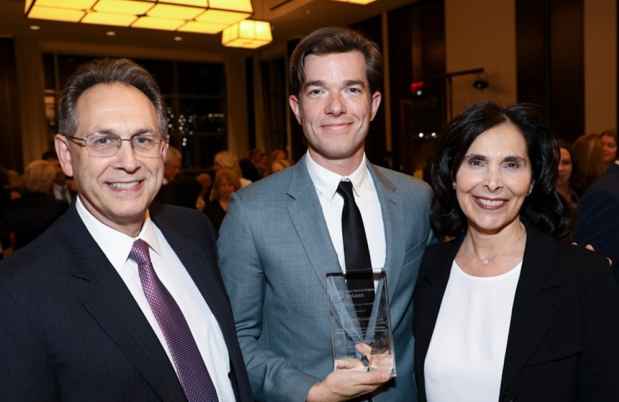Lecture – The Alfred Pope Award for Young Investigators 2019
Available with English captions.
The 2019 honorees are Galen Missig, PhD, and Joanna A. Korecka, PhD, McLean Hospital
Each year, McLean Hospital recognizes young researchers with the Alfred Pope Award for Early Career Investigators. The honor is named for one of the hospital’s most distinguished and respected researchers, the late Alfred Pope, MD. The award specifically recognizes the publication of an exceptional peer-reviewed, first-authored article on basic or clinical research performed at McLean. Honorees discuss their work during the awards ceremony.
Sex-Dependent Neurobiological Features of Prenatal Immune Activation Via TLR7 – Galen Missig, PhD
In this talk, Missig reports on emerging evidence of immune involvement in several psychiatric conditions. He cites research indicating that immune activation during “sensitive” periods of one’s life can alter the trajectory of the developing nervous system.
Watch now to learn more about:
- Evidence for a potential immune involvement in psychiatric conditions
- The scientific basis of prenatal immune activation models
- How prenatal immune activation with different pathways may result in divergent phenotypes
Missig explains that epidemiological studies find that various forms of inflammation during pregnancy can increase the offspring’s risk of developing a psychiatric condition. Most of this research has focused on the influence of maternal inflammation resulting from pathways in viral or bacterial infections. Still, the roles of other autoimmune-related pathways have been relatively unexplored, Missig reports.
To study these roles, Missig developed a new mouse model of maternal inflammation. He used an activator of toll-like receptor 7 (TLR7) to see how inflammation during pregnancy may affect offspring. Toll-like receptors are proteins involved in human immunity. TLR7 is believed to play a role in the development of autoimmune disorders.
These studies, Missig says, demonstrate that these models exhibit neuropsychiatric features and that activation of different immune pathways (e.g., toll-like receptor 7) can result in divergent phenotypes.
Missig also describes studies showing how alterations in peripheral cytokines/chemokines, microglia activation, and genetic studies provide evidence for an immune involvement in psychiatric conditions. And he explores some of the limitations of prenatal immune activation models. He explains how activation of specific immune pathways and difficulty characterizing psychiatric features in animal models present challenges for researchers.



